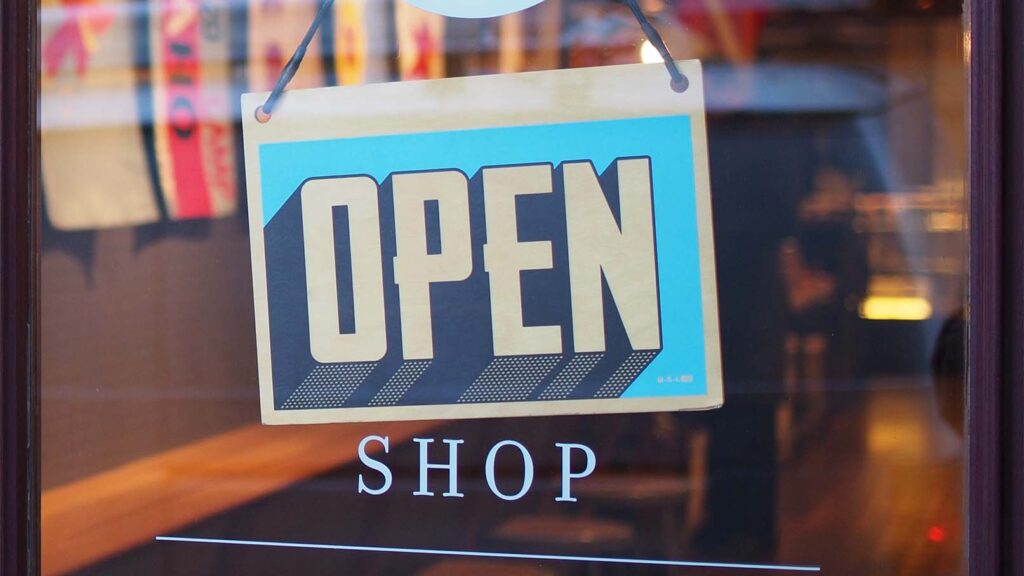Are you a business owner looking to expand your online presence? If so, you may be wondering how to integrate an online shopping cart and payment gateway onto your website. A shopping cart is a software application that allows customers to select and purchase products from your online store. A payment gateway is a service that securely processes online payments from customers. Integrating these two components is essential for any e-commerce business.
There are many options available for shopping cart and payment gateway integration. Some popular shopping cart platforms include Shopify, Zen Cart, and WooCommerce. These platforms offer various features and integrations with different payment gateways. It is important to choose a shopping cart and payment gateway that meet the needs of your business and your customers. With the right integration, you can provide a seamless and secure online shopping experience for your customers, which can lead to increased sales and customer satisfaction.
Table of Contents
ToggleUnderstanding Shopping Carts
When it comes to online shopping, a shopping cart is an essential component of any e-commerce website. A shopping cart is a software application that allows customers to select and purchase items from an online store. The shopping cart software collects the customer’s order and stores it until they are ready to check out.
Types of Shopping Carts
There are two main types of shopping carts: hosted and self-hosted. Hosted shopping carts are provided by third-party companies that host the cart on their servers. Self-hosted shopping carts require the website owner to install the software on their own server.
Hosted shopping carts are typically easier to set up and maintain, but they may have limitations on customization. Self-hosted shopping carts require more technical knowledge to set up, but they offer greater flexibility and control over the shopping experience.
Importance of Shopping Carts
Shopping carts are an essential part of any e-commerce website because they provide a convenient and secure way for customers to purchase products online. Without a shopping cart, customers would have to manually order each item they wanted to purchase, which would be time-consuming and inconvenient.
In addition to providing a convenient shopping experience, shopping carts also offer a range of features that can help increase sales and customer satisfaction. For example, shopping carts can offer discounts, coupons, and other promotions to encourage customers to complete their purchase. They can also provide detailed product information, customer reviews, and other resources to help customers make informed purchasing decisions.
Overall, shopping carts are an essential component of any e-commerce website. Whether you choose a hosted or self-hosted shopping cart, it is important to select a cart that is easy to use, secure, and offers the features and functionality that your customers need.
Understanding Payment Gateways
When it comes to online transactions, payment gateways play a crucial role in ensuring secure and efficient payments. In this section, we’ll discuss the types of payment gateways and their importance in online transactions.
Types of Payment Gateways
There are two types of payment gateways: integrated and hosted.
Integrated Payment Gateways
Integrated payment gateways are those that are fully integrated into the online store. This means that the payment process is seamless and takes place entirely within the store’s website. Integrated payment gateways are preferred by many online stores because they provide a secure and efficient payment process.
Hosted Payment Gateways
Hosted payment gateways, on the other hand, take the customer to a separate payment page to complete the transaction. This type of payment gateway is less preferred because it can cause a break in the customer’s shopping experience. However, it is still a popular option for many businesses because it is easy to set up and maintain.
Importance of Payment Gateways
Payment gateways are essential for any online business that wants to accept payments securely and efficiently. Here are some reasons why payment gateways are important:
- Security: Payment gateways provide a secure way for customers to make payments. They use encryption and other security measures to protect sensitive information.
- Convenience: Payment gateways make it easy for customers to make payments. They can pay with a credit card, debit card, or other payment methods.
- Speed: Payment gateways process transactions quickly, which means that businesses can receive payments faster.
In conclusion, payment gateways are an essential part of any online business that wants to accept payments securely and efficiently. By understanding the different types of payment gateways and their importance, businesses can choose the right payment gateway for their needs.
The Integration Process
Integrating a shopping cart and payment gateway is an essential step for any e-commerce business. It allows businesses to accept online payments from customers and streamline the checkout process. Here are some key steps to consider when integrating a shopping cart and payment gateway:
Choosing the Right Shopping Cart
When selecting a shopping cart, it’s important to consider the features and functionality that your business needs. Some shopping carts are designed for small businesses, while others are better suited for larger enterprises. Here are some factors to consider when choosing a shopping cart:
- Ease of use
- Customization options
- Payment gateway compatibility
- Security features
- Customer support
Choosing the Right Payment Gateway
Selecting the right payment gateway is crucial for ensuring that your business can accept online payments securely and efficiently. Here are some factors to consider when choosing a payment gateway:
- Fees and transaction costs
- Security features
- Payment methods accepted
- Integration options
- Customer support
Steps for Integration
Once you have selected your shopping cart and payment gateway, the integration process can begin. Here are some general steps to follow:
- Obtain API credentials from the payment gateway provider.
- Install the payment gateway plugin for your shopping cart.
- Configure the payment gateway settings to match your business requirements.
- Test the integration to ensure that payments are being processed correctly.
- Go live and start accepting payments!
Overall, integrating a shopping cart and payment gateway can be a straightforward process when you choose the right tools and follow best practices. By taking the time to research and select the right shopping cart and payment gateway, you can ensure that your business is set up for success in the online marketplace.
Security Concerns and Solutions
When it comes to ecommerce, security is a major concern for both customers and businesses. It is important to ensure that sensitive information, such as credit card details, is protected from fraudsters seeking unauthorized access. In this section, we will discuss the security measures that should be in place for both shopping carts and payment gateways.
Security Measures for Shopping Carts
Shopping carts are an essential part of any ecommerce website, but they can also be a target for cybercriminals. Here are some security measures that should be implemented:
- Use SSL encryption: SSL encryption ensures that any data transmitted between the customer’s browser and the server is secure and cannot be intercepted by third parties.
- Regularly update software: Ensure that the shopping cart software is up-to-date with the latest security patches and updates.
- Use strong passwords: Make sure that all passwords are strong and unique to prevent unauthorized access.
- Monitor for suspicious activity: Regularly monitor the shopping cart for any suspicious activity, such as multiple failed login attempts or unusual order patterns.
Security Measures for Payment Gateways
Payment gateways are responsible for processing credit card payments and are therefore a prime target for cybercriminals. Here are some security measures that should be implemented:
- Use tokenization: Tokenization replaces sensitive data, such as credit card numbers, with a unique token. This ensures that the data is not stored on the server and cannot be accessed by hackers.
- Use fraud detection tools: Payment gateways should have fraud detection tools in place to identify any suspicious activity, such as multiple failed login attempts or unusual order patterns.
- Regularly update software: Ensure that the payment gateway software is up-to-date with the latest security patches and updates.
- Use strong passwords: Make sure that all passwords are strong and unique to prevent unauthorized access.
By implementing these security measures, businesses can ensure that their ecommerce website is secure and protected from cybercriminals.
Maintenance and Updates
When it comes to shopping cart and payment gateway integration, maintenance and updates are crucial to ensure smooth and secure transactions. Here are some tips on how to keep your shopping cart and payment gateway up-to-date:
Keeping Shopping Carts Updated
Regular updates to your shopping cart software can help prevent security vulnerabilities and ensure compatibility with the latest payment gateway integrations. Here are some things to keep in mind when updating your shopping cart:
- Check for updates regularly: Most shopping cart software providers will release updates on a regular basis. Check for updates at least once a month to ensure you are running the latest version.
- Backup your data: Before updating your shopping cart software, make sure to backup your data. This will ensure that you don’t lose any important information in case something goes wrong during the update process.
- Test the update on a staging site: Before updating your live site, test the update on a staging site. This will allow you to identify any issues before they affect your customers.
Keeping Payment Gateways Updated
Payment gateway updates are important to ensure that your customers’ payment information is secure and that transactions are processed smoothly. Here are some things to keep in mind when updating your payment gateway:
- Check for updates regularly: Most payment gateway providers will release updates on a regular basis. Check for updates at least once a month to ensure you are running the latest version.
- Ensure compatibility with your shopping cart: Before updating your payment gateway, make sure that it is compatible with your shopping cart software. Incompatible software can lead to errors and failed transactions.
- Test the update on a staging site: Before updating your live site, test the update on a staging site. This will allow you to identify any issues before they affect your customers.
By following these tips, you can ensure that your shopping cart and payment gateway are up-to-date and running smoothly, providing your customers with a seamless shopping experience.
Conclusion: The Impact of Successful Integration
In today’s fast-paced world, having a successful integration between your shopping cart and payment gateway is crucial for any online business. It not only ensures a seamless checkout experience for your customers but also helps in building trust and credibility for your brand.
By integrating a payment gateway, you can accept payments from various sources, including credit cards, debit cards, and digital wallets. This, in turn, opens up new opportunities for your business to expand and reach a wider audience.
Moreover, a successful integration also helps in reducing the risk of fraud and chargebacks, which can be detrimental to any business. By implementing security measures such as SSL encryption, tokenization, and fraud detection, you can protect your business and customers from any potential threats.
In conclusion, a successful integration between your shopping cart and payment gateway can have a significant impact on the success of your online business. By providing a seamless checkout experience, accepting various payment methods, and implementing security measures, you can build trust and credibility for your brand and take your business to new heights.
Frequently Asked Questions
What are the steps involved in integrating a payment gateway with a shopping cart?
The integration process for a payment gateway varies depending on the shopping cart platform being used. Generally, the steps involve selecting a payment gateway provider that is compatible with the shopping cart, obtaining an API key or integration instructions from the provider, and configuring the shopping cart to use the payment gateway.
What are the most popular payment methods for shopping carts?
The most popular payment methods for shopping carts include credit and debit cards, PayPal, Apple Pay, Google Pay, and Amazon Pay. Some shopping cart platforms may also support alternative payment methods such as cryptocurrency or bank transfers.
What is the difference between a virtual terminal and a payment gateway?
A virtual terminal is a web-based application that allows merchants to manually process credit card payments without the need for a physical card reader. A payment gateway, on the other hand, is a service that securely transmits payment information from the customer to the merchant’s bank account.
What is the transaction process for credit card payments?
When a customer enters their credit card information at checkout, the payment gateway encrypts the data and sends it to the merchant’s bank for processing. The bank then checks the customer’s account for available funds and approves or declines the transaction. If approved, the funds are transferred to the merchant’s account.
How can a merchant account provider help with payment processing?
A merchant account provider can offer services such as credit card processing, fraud detection, chargeback management, and reporting tools to help merchants streamline their payment processing. They can also provide guidance on selecting a payment gateway and integrating it with a shopping cart.
What are the key features to look for in a merchant gateway?
When selecting a payment gateway, merchants should look for features such as security measures to protect customer data, support for multiple payment methods, compatibility with their shopping cart platform, and competitive transaction fees. It is also important to consider the provider’s reputation and customer support options.




